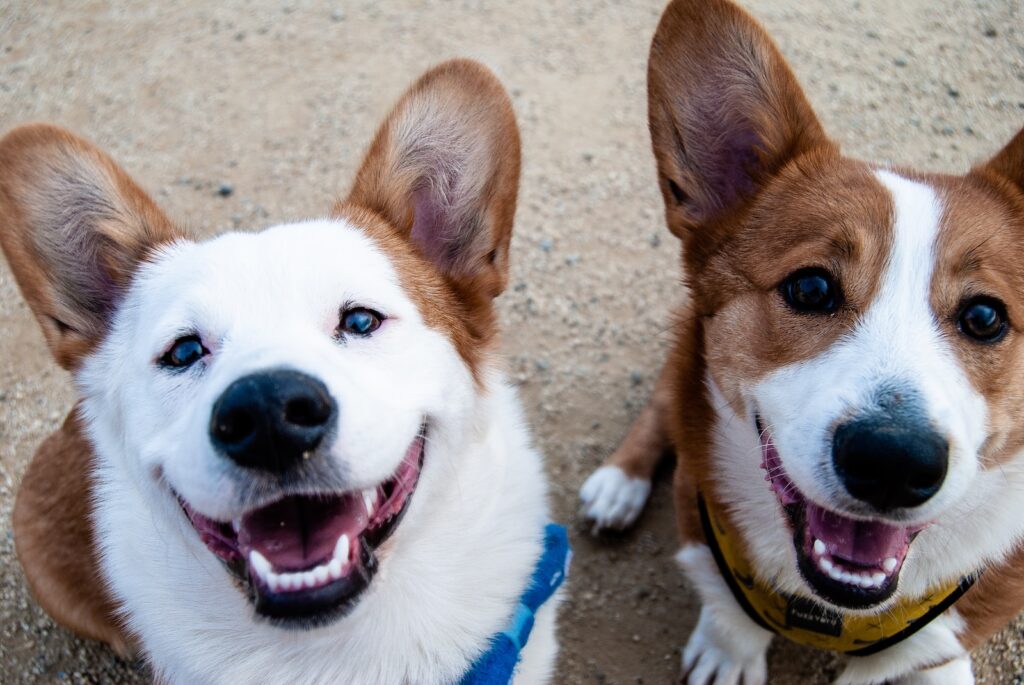Can Dogs Eat Ketchup? — No, They can’t
Dogs should not eat ketchup as it can be harmful to their health. While a small amount of ketchup may not necessarily cause immediate harm, it contains ingredients that can potentially be toxic to dogs if consumed in larger quantities. It is important to prioritize your dog’s well-being and avoid feeding them any food item that can pose risks, including ketchup.
Can Puppies Eat Ketchup?
Puppies should also avoid consuming ketchup. Their developing digestive systems are often more sensitive compared to adult dogs, making them more prone to adverse reactions from certain food items. Therefore, it is best to keep ketchup away from puppies and focus on providing them with a nutritionally balanced diet specifically formulated for their needs.
Why is Ketchup Harmful for Dogs?
There are several reasons why ketchup is considered harmful for dogs:
1. High Sugar Content
Ketchup typically contains high levels of sugar, which can lead to obesity, dental issues, and energy imbalances in dogs. Regular consumption of sugary foods can increase the risk of diabetes and other health problems.
2. Sodium and Other Additives
Ketchup often contains high levels of sodium, along with various artificial additives such as preservatives and flavor enhancers. Excessive sodium intake can be detrimental to a dog’s cardiovascular health and may lead to dehydration.
3. Potential Allergens
Ketchup can contain ingredients like onions, garlic, or other spices that are known to be toxic to dogs. These ingredients can lead to digestive upset, anemia, and other adverse reactions.
Symptoms to Watch Out For After Dogs Consume Ketchup
- Upset Stomach: Dogs may experience vomiting, diarrhea, and abdominal discomfort after consuming ketchup.
- Dehydration: Due to the high sodium content in ketchup, excessive consumption can lead to dehydration, resulting in increased thirst and reduced urine production.
- Allergic Reactions: Some dogs may exhibit symptoms of allergies, such as itchiness, skin rashes, or difficulty in breathing, if they are allergic to any of the ingredients in ketchup.
Immediate Steps to Take if Your Dog Eats Ketchup
- Monitor Your Dog: Keep a close eye on your dog for any signs of discomfort or abnormal behavior after consuming ketchup. If symptoms persist or worsen, seek veterinary attention.
- Offer Water: If your dog consumed ketchup, ensure they have access to fresh water to stay hydrated and flush out any potential toxins.
- Contact Your Vet: In case of severe symptoms or if you have concerns about your dog’s health, it is advisable to contact your veterinarian for professional guidance.
Safe Alternatives to Ketchup
While ketchup is not suitable for dogs, there are alternative condiments and food options that can add flavor to their meals safely:
- Mashed Potatoes: Mashed potatoes can be a tasty addition to your dog’s meal. Ensure they are plain and free from any added ingredients like butter, seasonings, or sauces.
- Apples: Apples are a healthy and delicious treat for dogs. Just remember to remove the seeds and core before offering them to your furry friend.
- Plain Yogurt: Plain yogurt, without any added sugars or artificial sweeteners, can serve as a nutritious and soothing topping for your dog’s meal. It also provides beneficial probiotics.
Conclusion
In conclusion, it is best to avoid feeding ketchup to dogs due to the potential risks it poses. The high sugar content, sodium levels, and potential allergens make it unsuitable for their consumption. Opt for safe alternatives that can enhance the flavor of their meals without compromising their health. Always prioritize your pet’s well-being and consult a veterinarian if you have any concerns or questions regarding their diet.
Frequently Asked Questions
Can ketchup cause diarrhea in dogs?
Ketchup can potentially cause diarrhea in dogs, especially if consumed in large quantities. The high sugar content and certain additives can disrupt their digestive system, leading to gastrointestinal issues.
Is it safe for dogs to consume tomato sauce instead of ketchup?
While tomato sauce doesn’t contain the same level of additives and sugars as ketchup, it is still best to avoid feeding it to dogs. Tomato sauces often contain other ingredients that may not be suitable for canine consumption, such as garlic or onions, which can be toxic to them.
Can dogs have a small taste of ketchup once in a while?
It is generally recommended to avoid giving dogs any amount of ketchup. While a small taste might not cause immediate harm, it is best to maintain a consistent and healthy diet for your dog to ensure their well-being in the long run.
What should I do if my dog accidentally consumes ketchup?
If your dog accidentally consumes ketchup, monitor their behavior and watch out for any symptoms of discomfort. Offering fresh water and contacting your vet for advice are recommended steps to take if you have concerns about your dog’s well-being.






